It looks like you're using an Ad Blocker.
Please white-list or disable AboveTopSecret.com in your ad-blocking tool.
Thank you.
Some features of ATS will be disabled while you continue to use an ad-blocker.
5
share:
Maldives are known to be a tropical paradise, but it also the world's biggest rubbish island....
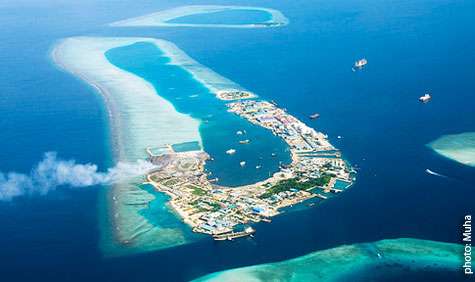
Yes, Thilafushi lagoon is covered with garbage which floats off the island into the outer sea causing a massive environmental hazard.
It was originally a lagoon called ‘Thilafalhu’, with a length of 7 km and a width of 200 meters at the shallowest regions, situated a few kilometers from Male’, but, in order to solve the problem of garbage generated in Male’, Maldives authorities decided in December 1991 to use it as a waste disposal center.
The Thilafushi time-bomb is adding to the Maldives ecological woes, an already burning issue in a context of rise in the sea level because of global warming. The Maldivian archipelago is less than one meter above sea level, which makes it one of the most endangered countries of the world, along with South Pacific island-nations.
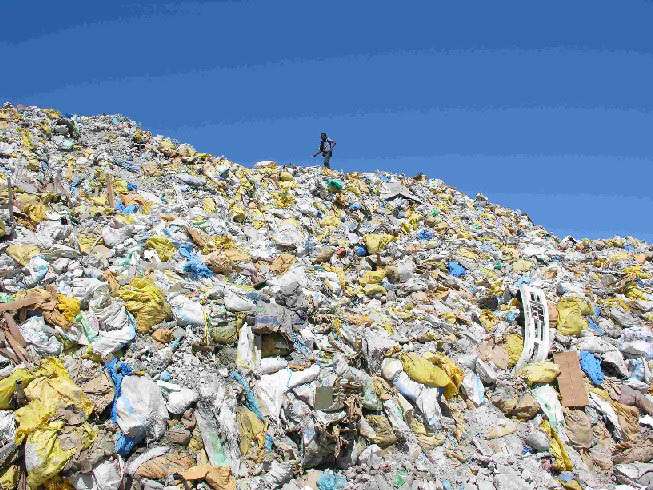
The problem is that, 20 years after, there's still no regulation whatsoever:
- the rubbish island now covers 50 hectares (124 acres).
- it is now growing by one square metre every day
- 330 tonnes of rubbish is brought to Thilafushi a day
- 31,000 truckloads of garbage are transported to Thilafushi annually
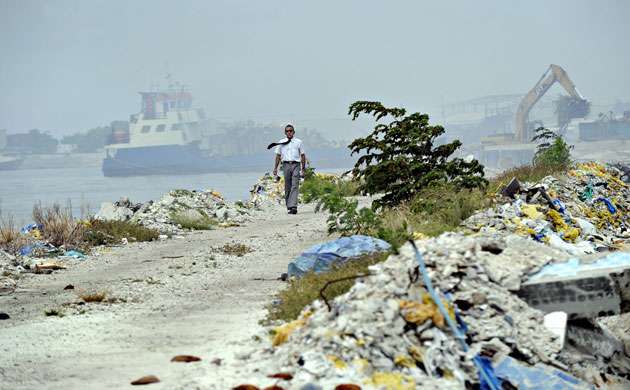
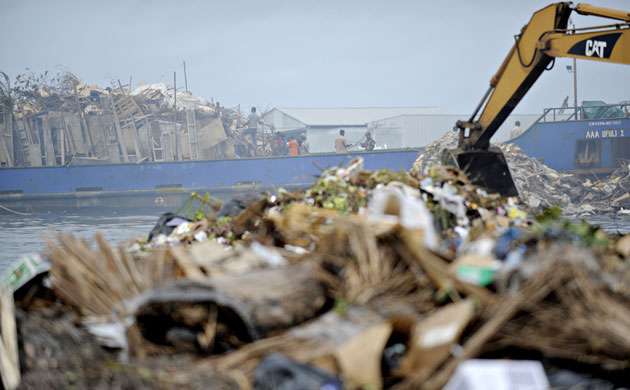
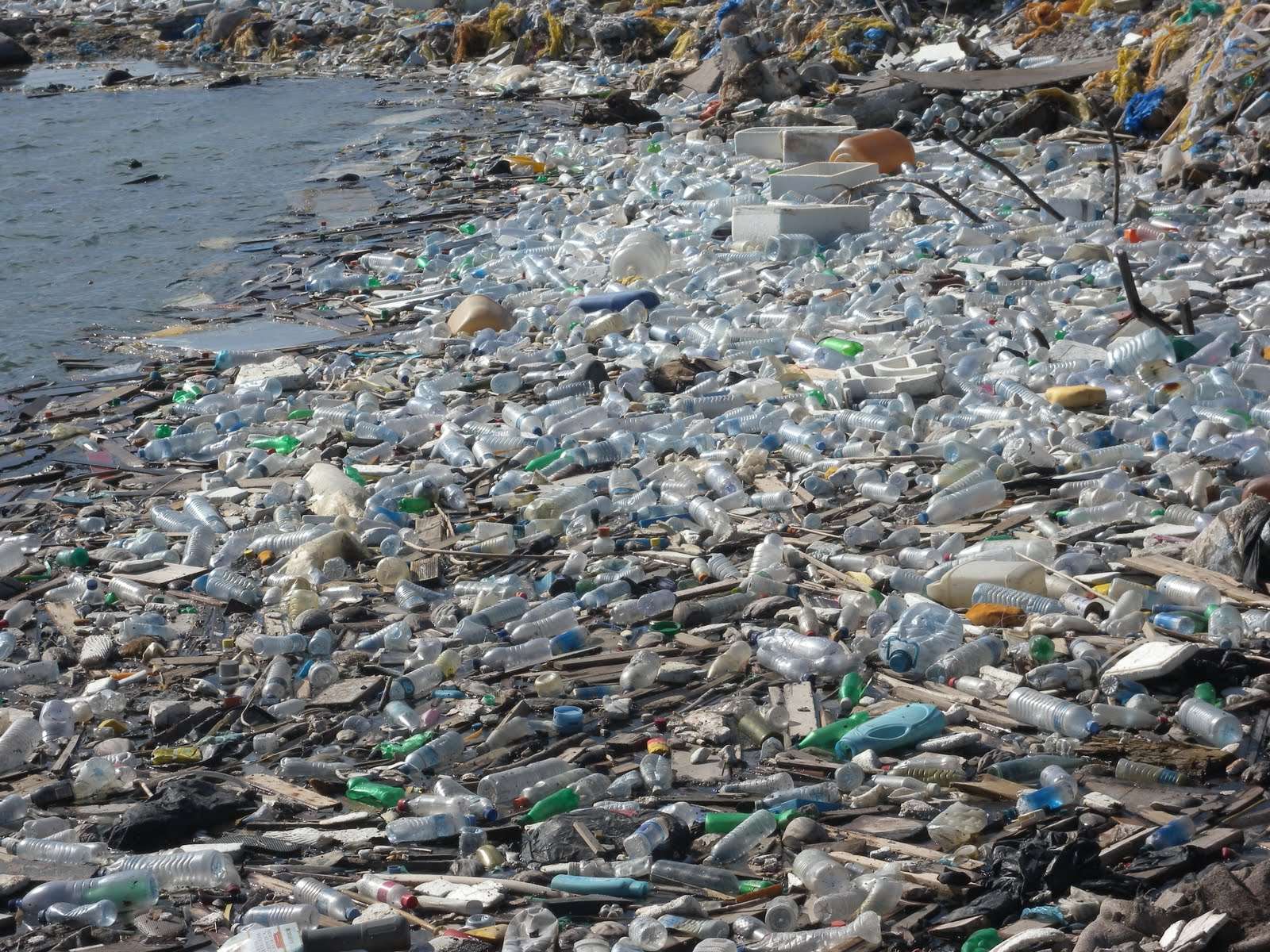
So, what's the solution?
Here's what Bluepeace said back in 2008:
It was four years ago and seems like that nothing have change. (See last article of BBC News, one month ago)
Sources:
- Wikipedia
- BBC News
- Bluepeace
- The Guardian
- The Guardian (photo gallery)

Yes, Thilafushi lagoon is covered with garbage which floats off the island into the outer sea causing a massive environmental hazard.
It was originally a lagoon called ‘Thilafalhu’, with a length of 7 km and a width of 200 meters at the shallowest regions, situated a few kilometers from Male’, but, in order to solve the problem of garbage generated in Male’, Maldives authorities decided in December 1991 to use it as a waste disposal center.
The Thilafushi time-bomb is adding to the Maldives ecological woes, an already burning issue in a context of rise in the sea level because of global warming. The Maldivian archipelago is less than one meter above sea level, which makes it one of the most endangered countries of the world, along with South Pacific island-nations.

The problem is that, 20 years after, there's still no regulation whatsoever:
- the rubbish island now covers 50 hectares (124 acres).
- it is now growing by one square metre every day
- 330 tonnes of rubbish is brought to Thilafushi a day
- 31,000 truckloads of garbage are transported to Thilafushi annually

Thilafushi lagoon fill, with used batteries, asbestos, lead and other potentially hazardous waste mixed with the municipal solid wastes, is an increasingly serious ecological and health problem in the Maldives.
Even though batteries and e-waste are quite a small fraction of municipal waste disposed at the Thilafushi, they are a concerted source of toxic heavy metals such as mercury, lead and cadmium. Chemicals can leach out into water table or sea and endanger the surrounding sea and reefs.

Potentially hazardous wastes are not sorted at the collection or disposal ends in Thilafushi. However, nowadays at the disposal site at Thilafushi and in the main collection centre in Male, scrap metals such as copper, tin, zinc, steel, plastic bottle, cardboard boxes and used oil are sorted. According to the Custom Statistics scrap metal is the major export from Maldives to India.
There are no recycling facilities for the safe disposal for the hazardous waste such as used batteries, lead, asbestos and mercury in the Maldives. Asbestos are mainly found in the Maldives as corrugated asbestos-cement sheets or “A/C Sheets” locally know as Simenthi tinu (Cement roofing sheets).

A growing number of mobile phone and electronic equipment purchases in the country and rising number of tourist arrivals in the recent decades lead to an increase in disposal of used batteries and other potentially harmful electronic or e-waste. These are mixed with municipal waste and are inappropriately disposed in the Maldives.
Likewise, e-waste with other hazardous waste such as mercury, lead and cadmium in the used batteries can mix in the salt water at Thilafushi dump and cause even more danger.
The scariest part is that unlike the landfill, in a lagoon fill or sea fill, toxics chemicals can easily seep out into the coastal zone and enter into the lower level in the food web, algae, zooplankton, and fish. Once these toxics chemicals are released it is very difficult to remove them from the food web and can end up on our dinner plate in fish or lobsters.
So, what's the solution?
Here's what Bluepeace said back in 2008:
Bluepeace strongly feels the solution to the issue of Hazardous Waste can only be addressed within a National Framework for Solid Waste Management in the Maldives. There are a number of studies by different organizations on Solid Waste Disposal for the Maldives, including hazardous waste. Most of the studies have gathered dust on bookshelves. We would like to hear the perspectives of concerned citizens about the issue.
The following are some of the reports by experts:
JICA. (1998). The Study on Solid Waste Management for Male City
‘National Framework for Solid Waste Management in the Maldives’ project by UNDP and the Ministry of Environment, Energy and Water. www.mv.undp.org... [link not available anymore]
Maldives: State of the Environment 2002 www.rrcap.unep.org...
It was four years ago and seems like that nothing have change. (See last article of BBC News, one month ago)
Sources:
- Wikipedia
- BBC News
- Bluepeace
- The Guardian
- The Guardian (photo gallery)
edit on 19-6-2012 by elevenaugust because: (no reason given)
Reply to post by elevenaugust
Nice post! On top of it being a ticking time bomb- the land it's creating is being turned into industrial zones.. That's like insult to injury lol this is absolutely horrible ... But at the sanme time, on an island that's basically being submerged what other options would they have? Note: I'm not condoning in anyway, but what else could they do with that much trash?
Posted Via ATS Mobile: m.abovetopsecret.com
Nice post! On top of it being a ticking time bomb- the land it's creating is being turned into industrial zones.. That's like insult to injury lol this is absolutely horrible ... But at the sanme time, on an island that's basically being submerged what other options would they have? Note: I'm not condoning in anyway, but what else could they do with that much trash?
This is a sad example of how we as a species go for short term gains over long term sustainability.
All those well off people who go to the Maldives on holiday are contributing to this waste dump,(and also eating small parts of it back in the fish they consume).
It is also a perfect example of our larger society in a microscopic scale-The supposedly rich in their clean posh beach resorts,yet round the corner is toxic death,creeping ever closer.
Aren't we humans just great at the moment?
Didn't we do OK just before the industrial revolution for many thousands of years?
Now we either have to solve space travel to a new planet,or we will soon become one of the other billions of species who have become extinct on this planet we call Earth.
All those well off people who go to the Maldives on holiday are contributing to this waste dump,(and also eating small parts of it back in the fish they consume).
It is also a perfect example of our larger society in a microscopic scale-The supposedly rich in their clean posh beach resorts,yet round the corner is toxic death,creeping ever closer.
Aren't we humans just great at the moment?
Didn't we do OK just before the industrial revolution for many thousands of years?
Now we either have to solve space travel to a new planet,or we will soon become one of the other billions of species who have become extinct on this planet we call Earth.
Originally posted by Silcone Synapse
This is a sad example of how we as a species go for short term gains over long term sustainability.
All those well off people who go to the Maldives on holiday are contributing to this waste dump,(and also eating small parts of it back in the fish they consume).
It is also a perfect example of our larger society in a microscopic scale-The supposedly rich in their clean posh beach resorts,yet round the corner is toxic death,creeping ever closer.
Absolutely agree, people are fine with all of this as long as they are not the ones who have to deal with it.
They drive a Prius, drink mineral water and do Yoga, thinking they're "in touch" with the planet and thinking in a healthy and ecological way, when they're not. They're just shallow holes going through the motions in order to make themselves feel less guilty for being such a waste of skin.
Nothing will change unless we're forced to. It'll take a global disaster of incredible proportions to convince people that we need to fundamentally rethink the way we consume and waste on a whim.
new topics
-
God's Righteousness is Greater than Our Wrath
Religion, Faith, And Theology: 2 hours ago -
Electrical tricks for saving money
Education and Media: 5 hours ago -
VP's Secret Service agent brawls with other agents at Andrews
Mainstream News: 7 hours ago -
Sunak spinning the sickness figures
Other Current Events: 7 hours ago -
Nearly 70% Of Americans Want Talks To End War In Ukraine
Political Issues: 8 hours ago -
Late Night with the Devil - a really good unusual modern horror film.
Movies: 9 hours ago -
Cats Used as Live Bait to Train Ferocious Pitbulls in Illegal NYC Dogfighting
Social Issues and Civil Unrest: 11 hours ago
top topics
-
VP's Secret Service agent brawls with other agents at Andrews
Mainstream News: 7 hours ago, 9 flags -
Cats Used as Live Bait to Train Ferocious Pitbulls in Illegal NYC Dogfighting
Social Issues and Civil Unrest: 11 hours ago, 8 flags -
Electrical tricks for saving money
Education and Media: 5 hours ago, 4 flags -
HORRIBLE !! Russian Soldier Drinking Own Urine To Survive In Battle
World War Three: 15 hours ago, 3 flags -
Nearly 70% Of Americans Want Talks To End War In Ukraine
Political Issues: 8 hours ago, 3 flags -
Sunak spinning the sickness figures
Other Current Events: 7 hours ago, 3 flags -
Late Night with the Devil - a really good unusual modern horror film.
Movies: 9 hours ago, 2 flags -
The Good News According to Jesus - Episode 1
Religion, Faith, And Theology: 13 hours ago, 1 flags -
God's Righteousness is Greater than Our Wrath
Religion, Faith, And Theology: 2 hours ago, 0 flags
5
